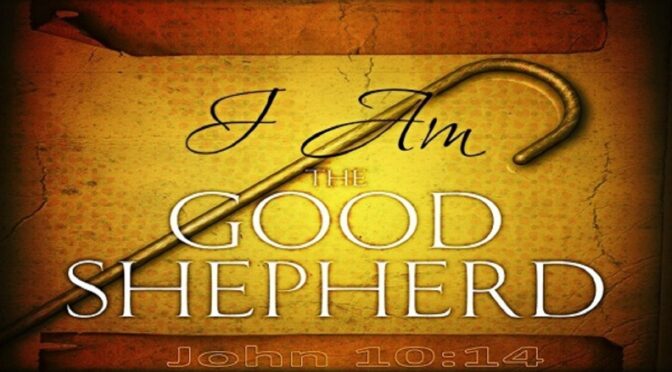Contents
Introduction
Among his various descriptions or presentations of Jesus, the author of the Gospel according to John views Jesus as a good shepherd. He rightly distinguished and differentiated him from the hired worker, who though pastures the sheep, but is not identified with the sheep. This identification and presentation of Jesus as the good shepherd comes after the great commissioning, and the opening of the disciples’ minds to understand the Scriptures and be able to bear witness to the Gospel. Adopting network term, between the hired labourer and the sheep, there is no link, no connection. The issue is not being a shepherd, but knowing the kind of shepherd a person is. When Jesus saw the crowd, his heart was filled with pity for them because they were like sheep without shepherd (cf. Matt 9:36). Sheep and shepherds are a large part of the Mediterranean world. This was also the case in the Biblical times. Sheep were everywhere in the Near Eastern world. Sheep and shepherding were.…
The good shepherd
In the words of John, and according to his understanding and theology, a good shepherd:
- Lays down his life for the sheep because he sincerely cares for them and loves them too;
- Knows the sheep one after the other. That is, he knows them individually and can always identify them anywhere, everywhere;
- The good shepherd carefully and continuously leads the sheep.
- Calls the sheep to order; protects them from danger and if injured, dresses the wound.
- Lives for the sheep.
Conclusion
Today is the Sunday of the Good Shepherd. The day we are reminded of the need to be good shepherds according to our various vocations and missions. Jesus said he is the gate to the sheepfold, and that all those who came before him were thieves and bandits. This observation must be taken serious. If those who came before Jesus were thieves and bandits, many who came after him have not ceased thieving and vandalizing. They are even worse because they now steal in and with the name of Jesus. They are messianic impostors who promise their victims heaven and earth, when their only intention is to take advantage of them (cf. Acts 5:36–37). Concerning these same bad shepherds who instead of feeding the sheep, fed themselves, God sent prophet Ezekiel to let them know that He is not happy with them the shepherds who have failed to feed the flock, make the weak ones strong, bandage the injured ones, and have even exposed them to wild animals. Hence, God swore to take His flock out of their charge. He promised to rescue His sheep from those bad shepherds and to stop them from feeding from the flock they were supposed to fed (cf. Ezek 34:1–16).
FOR DETAILS, GET YOUR OWN COPIES OF THE BOOK “THE WORD OF LIFE: SUNDAY REFLECTIONS” (vols. I and II)!! The reflection for the FOURTH Sunday of Pascha (B) is found in vol. II pages 193–201. Happy reading!
For details on how to get it, contact the author on this link: https://m.me/uchennabiblia?fbclid=IwAR2yeg4a6sDGBp9QGkIvKj6FSADumMokN6lshdE0zuo-JHs6qOmlhA7jyHo or email me at: postmaster@uchennabiblia.com or simply send an SMS on 08116100926, and I will get back to you.

